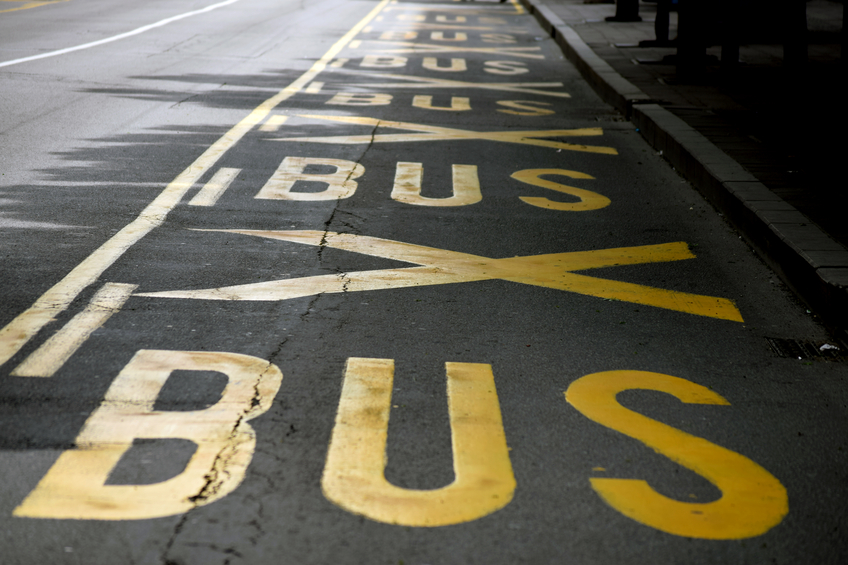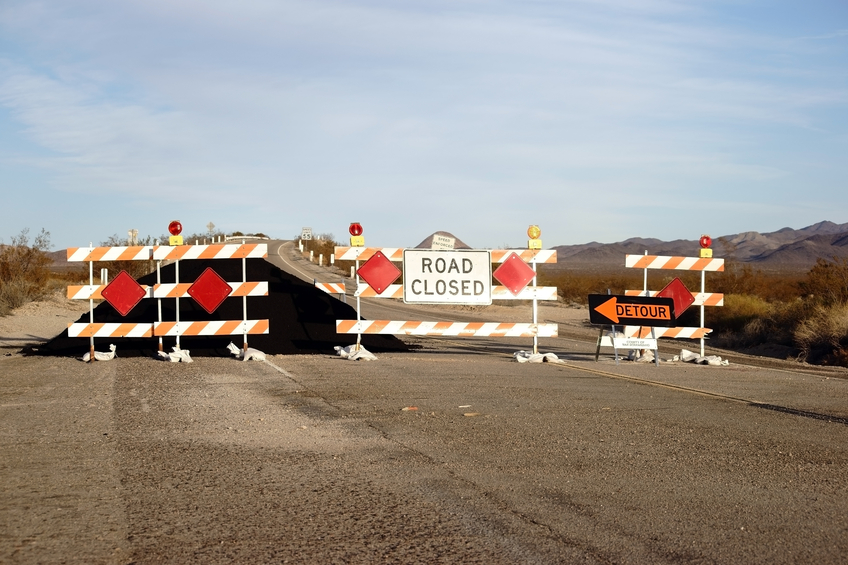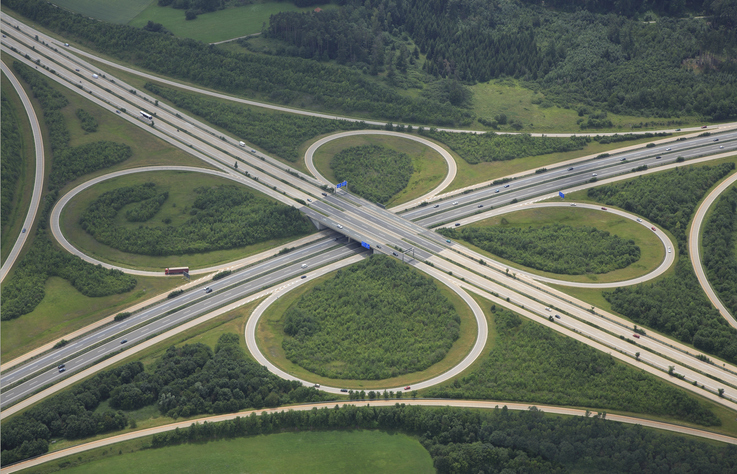Illinois Transportation and Laws/Rules/Ethics/Sexual Harassment 30 PDH Discount Package 1
Courses in this Package
Managed Freeway Lanes (C04-011)
Roundabout Traffic Design and Landscaping (C03-010)
Traffic Bottlenecks Operational Improvements (C06-018)
Traffic Control Concepts for Urban and Suburban Streets (C07-004)
Transportation Management Plans for Work Zones (C07-001)
Sexual Harassment Prevention for Illinois Professionals (IL1-001)
Engineering Laws, Rules, and Ethics for Illinois Professional Engineers (IL2-001)

This online engineering PDH course describes operating managed lane projects through a case study approach, highlighting best practices of the projects and the lessons learned. It also presents emerging issues and knowledge gaps. The intent of this course is to provide a cross-cutting study of the issues and experiences of various agencies as managed lane projects are implemented and policies are drafted.
Increasing traffic congestion in the major metropolitan areas is costing billions of dollars each year in lost productivity, wasted fuel, increasing air pollution and hours of delay. Adding new general-purpose lanes is increasingly difficult because of factors such as construction costs, limited right-of-way, environmental and societal concerns. As a result, agencies are looking for solutions to improve the flow of traffic on existing facilities.
One concept being considered is that of "managed lanes". Managed lanes employ various strategies to improve flow and maximize the efficiency of the freeway system. Common types of managed lanes include high-occupancy vehicle (HOV) lanes, high-occupancy toll (HOT) lanes, value priced lanes, or exclusive or special use lanes.
This 4 PDH online course is applicable to traffic engineers, transportation planners, conceptual and detail designers, and other technical professionals who are involved with developing and operating managed lane facilities in freeway corridors and are interested in gaining a basic understanding of the issues associated with developing managed lane projects.
This PE continuing education course is intended to provide you with the following specific knowledge and skills:
- Understanding managed lanes
- Planning and implementing managed lanes
- Considering operational and design issues
- Understanding the effects of managed lanes over the facility life on its implementation
In this professional engineering CEU course, you need to review the Federal Highway Administration Publication FHWA-HOP-05-037, "Managed Lanes".
Upon successful completion of the quiz, print your Certificate of Completion instantly. (Note: if you are paying by check or money order, you will be able to print it after we receive your payment.) For your convenience, we will also email it to you. Please note that you can log in to your account at any time to access and print your Certificate of Completion.

This online engineering PDH course presents guidelines on the design of traffic elements, illumination, and landscaping associated with roundabouts.
The design of these elements is critical in achieving the desired operational and safety features of a roundabout, as well as the desired visibility and aesthetics.
This 3 PDH online course is applicable to traffic engineers, transportation planners, conceptual and detailed designers, and other technical professionals who are involved in the traffic design and landscaping of roundabouts.
This PE continuing education course is intended to provide you with the following specific knowledge and skills:
- Designing the traffic elements including signing, pavement markings and work zone traffic control
- Designing the required illumination
- Landscaping the central island, splitter island and approach
In this professional engineering CEU course, you need to review Chapter 7, "Traffic Design and Landscaping", of the Federal Highway Administration Publication FHWA-RD-00-067, "Understanding Roundabouts".
Upon successful completion of the quiz, print your Certificate of Completion instantly. (Note: if you are paying by check or money order, you will be able to print it after we receive your payment.) For your convenience, we will also email it to you. Please note that you can log in to your account at any time to access and print your Certificate of Completion.

This online engineering PDH course describes bottlenecks and explores near-term operational and low-cost construction opportunities to correct them.
Delays due to traffic congestion seem like an unavoidable, frustrating fact of life. Or are they—unavoidable, that is? This course focuses on traffic congestion caused by bottlenecks—which are specific locations on the highway system where the physical layout of the roadway routinely cannot process the traffic that wants to use it and results in localized, recurring congestion.
By focusing on relieving localized, recurring congestion at bottlenecks, this primer can help agencies identify the right fix for a particular bottleneck. What’s more, the right fix for a localized, recurring bottleneck is usually spot-specific, more effective, less expensive, and faster to implement than building a new facility.
This 6 PDH online course is applicable to traffic engineers and planners, conceptual and detail designers, and other technical professionals who are interested in gaining a better understanding in traffic bottlenecks operational improvements.
This PE continuing education course is intended to provide you with the following specific knowledge and skills:
- Understanding bottlenecks and congestion
- Learning about the different strategies of resolving congestion
- Knowing how to structure a localized bottleneck program
- Identifying, assessing and addressing bottlenecks
- Incorporating quick-fix bottleneck solutions into the Congestion Initiative
- Understanding how agencies are dealing with bottlenecks (case studies)
Upon successful completion of the quiz, print your Certificate of Completion instantly. (Note: if you are paying by check or money order, you will be able to print it after we receive your payment.) For your convenience, we will also email it to you. Please note that you can log in to your account at any time to access and print your Certificate of Completion.

This online engineering PDH course discusses traffic control concepts for urban and suburban streets. In planning and designing a traffic signal control system, one must first understand the applicable operational concepts related to signalized intersection control and signal-related special control. A number of commonly used proprietary traffic systems and simulations are discussed in this chapter. These discussions provide illustrations of the technology.
This 7 PDH online course is applicable to transportation planners, traffic engineers, agency personnel as well as design and construction personnel involved with the development, review, approval, implementation, and assessment of traffic control planning, designs and implementation.
This PE continuing education course is intended to provide you with the following specific knowledge and skills:
- Understanding the various control variables
- Learning the sampling, filtering and smoothing techniques
- Knowledge of traffic signal timing parameters and signal phasing
- Dealing with isolated intersections
- Understanding arterial and network control and other special controls
- Understanding the benefits and measures of effectiveness
In this professional engineering CEU course, you need to review Chapter 3, "Traffic Control Concepts - Urban and Suburban Streets" of the Federal Highway Administration Publication, FHWA-HOP-06-006, "Traffic Control Systems Handbook".
Upon successful completion of the quiz, print your Certificate of Completion instantly. (Note: if you are paying by check or money order, you will be able to print it after we receive your payment.) For your convenience, we will also email it to you. Please note that you can log in to your account at any time to access and print your Certificate of Completion.

This online engineering PDH course sets forth some basic guiding principles and describes a general approach for developing, implementing, and assessing TMPs. This course is a compendium of guidance material, available resources, and suggested practices to help develop, implement, and assess transportation management plans (TMP) for work zones.
Work zone objectives, needs, and issues vary from project to project. Therefore, it is ultimately up to the professional to establish procedures and implement TMPs that best serve the safety and mobility needs of the traveling public, highway workers, businesses, and community.
This 7 PDH online course is applicable to transportation planners, traffic engineers, agency personnel as well as design and construction personnel involved with the development, review, approval, implementation, and assessment of TMPs.
This PE continuing education course is intended to provide you with the following specific knowledge and skills:
- Understanding the purpose of transportation management plans
- Learning the process for TMP development, implementation and assessment
- Knowledge of potential TMP components
- Implementing work zone impacts management strategies
- Familiarizing with current TMP use, examples and practices
In this professional engineering CEU course, you need to review the Federal Highway Administration Publication FHWA-HOP-05-066, "Developing and Implementing Transportation Plans for Work Zones".
Upon successful completion of the quiz, print your Certificate of Completion instantly. (Note: if you are paying by check or money order, you will be able to print it after we receive your payment.) For your convenience, we will also email it to you. Please note that you can log in to your account at any time to access and print your Certificate of Completion.

This online PDH course presents a training on sexual harassment prevention in order to adopt and actively implement policies that ensure that workplaces are safe for employees to report and express their concerns about sexual harassment.
The Illinois Human Rights Act makes it a civil rights violation “[f]or any employer, employee, agent of any employer, employment agency or labor organization to engage in sexual harassment.” 775 ILCS 5/2-102(D).
The Illinois General Assembly finds that tolerance of sexual harassment has a detrimental influence in workplaces by creating a hostile environment for employees, reducing productivity, and increasing legal liability. Therefore, every employer in the State of Illinois is required to provide employees with sexual harassment prevention training that complies with section 2-109 of the Illinois Human Rights Act (“IHRA”).
This 1 PDH online course is applicable to professionals licensed in the State of Illinois and who are required to demonstrate continuing professional competency in sexual harassment prevention training as a condition of their license renewal.
This PE continuing education course is intended to provide you with the following specific knowledge and skills:
- Gaining an overview of sexual harassment prevention consistent with the Illinois Human Rights Act
- Familiarizing with types of unlawful sexual harassment, unwelcome behavior and working environment
- Learning about examples of conduct that may constitute unlawful sexual harassment
- Understanding sexual harassment in online environments
- Understanding employer responsibilities in the prevention, investigation, and corrective measures on sexual harassment
- Familiarizing with the Federal and State statutory laws concerning sexual harassment including remedies available to victims
Upon successful completion of the quiz, print your Certificate of Completion instantly. (Note: if you are paying by check or money order, you will be able to print it after we receive your payment.) For your convenience, we will also email it to you. Please note that you can log in to your account at any time to access and print your Certificate of Completion.

This online engineering PDH course presents the laws and rules of ethics and professional responsibility governing the practice of engineering in the State of Illinois.
Engineering ethics is (1) the study of moral issues and decisions confronting individuals and organizations involved in engineering and (2) the study of related questions about moral conduct, character, ideals and relationships of peoples and organizations involved in technological development (Martin and Schinzinger, Ethics in Engineering).
Excerpts from the Professional Engineering Practice Act of 1989, 225 ILCS 325 and the Illinois Administrative Code, Part 1380, which relate to the rules of profession conduct, continuing education requirements, proper use of seal and other pertinent regulatory provisions are presented in this course.
This 2 PDH online course is applicable to Professional Engineers licensed in the State of Illinois who are required to demonstrate continuing professional competency in the Illinois Laws, Rules and Ethics as a condition of license renewal. For each renewal period, every licensee must complete thirty (30) professional development hours, at least one (1) of the 30 hours must be in professional ethics and one (1) of the 30 hours must be in the laws and rules regulating the practice of engineering in the State of Illinois.
This PE continuing education course is intended to provide you with the following specific knowledge and skills:
- Familiarizing with the laws and rules regulating the practice of engineering in the State of Illinois
- Learning about engineering ethics, the rules of professional conduct and responsibility
- Understanding the role of the Illinois Board and its disciplinary authority
- Understanding the continuing education requirements in the State of Illinois
- Gaining an overview of disciplinary cases, violations and their corresponding penalties imposed by the Illinois Board
Upon successful completion of the quiz, print your Certificate of Completion instantly. (Note: if you are paying by check or money order, you will be able to print it after we receive your payment.) For your convenience, we will also email it to you. Please note that you can log in to your account at any time to access and print your Certificate of Completion.